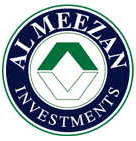| |
SAQIB FAROOQ
State Bank of Pakistan has proposed a ten-year framework for development of Islamic Financial Services Industry. It is a joint venture of Islamic Research & Training Institute, Islamic Development Bank and Islamic Financial Services Board.
A sixty-page report has put forward twelve recommendations covering broad strategies and initiatives for developing components of Islamic Financial Services Industry (IFSI) namely, banks, non-banking financial institutions, insurance, and capital markets.The recommendations inter alia include enhancement of capitalisation and efficiency of IFSI; ensure access of all segments to the financial services and also effectiveness of corporate governance.
Further it recommends development of specialised high-calibre human capital, ensure utilisation of developed standardised products through research and innovation along with compliance with international products, accounting and auditing standards applicable to the IFSI.
The draft recommendations also call for collaboration among countries, which offer Islamic financial services and take initiatives to enhance financial linkages to integrate domestic IFSIs with regional and international financial system.
The framework focuses on facilitating sustainable economic development and just social progress through a sound, efficient, progressive and resilient Islamic Financial Services Industry.
It also focuses on the development of a dynamic, comprehensive and innovative IFSI, which closely supports real economic activities and is well integrated within the international financial system. The draft report says that it aims at providing a general framework which national authorities may find beneficial for designing IFSI development initiatives and integrating these in their national financial sector development policies.
The document also aims at offering an integrated basis for promoting international policy dialogue among stakeholders towards fostering an orderly development of an efficient, sound, resilient and sustainable IFSI in the rapidly changing global market, technology and regulatory environments.
It emphasises the critical issues of poverty alleviation and improvements in important socio-economic aspects of life such as health and education, reduction in child mortality, providing safe and secure future for youth etc, are top of the public policy agenda of our societies.
The financial services industry must play a vital role in addressing these perennial human development and socio-economic problems and achieving sustainable economic development and just social progress by efficiently and equitably channelling financial resources towards productive opportunities and employment generation.
Islam offers significant guidance in the domain of economic, financial and commercial activities. Ensuring the compliance of financial services with these guidelines is necessary for the services to be relevant for use by Muslims and hence broadening the public's access to financial services. The Islamic financial services industry (IFSI) caters to this special need of the society.
Promotion of the IFSI is also part of the efforts in gradually replacing informal markets with organised and regulated ones and enhancing the overall development of the financial sector.
The IFSI also faces significant challenges as a result of its own special risk characteristics and unique governance requirements. Nonetheless, the IFSI is growing rapidly in national, regional and international financial markets and is increasingly gaining systemic significance. Promotion of the IFSI and institutions offering Islamic financial services (IFS) is one of the three strategic objectives of the Islamic Development Bank (IsDB) Group.
To achieve this objective IsDB Group's Strategic Framework document entrusts to the Islamic Research and Training Institute (IRTI) the responsibility of establishing suitable partnerships and networking programmes.
The Islamic Financial Services Board (IFSB) has been mandated by its members to provide guidance on effective supervision and regulation to ensure the soundness and stability of the global IFSI. Hence, the IsDB/IRTI and the IFSB have undertaken the joint initiative to draft this framework document as a "ten-year roadmap" for an orderly development of IFSI.
THE AIMS AND OBJECTIVES OF THE FRAMEWORK ARE TO:
i) Provide, for national authorities of IsDB and IFSB members as well as other interested countries, a platform for sharing experiences and a general blueprint for considering the formulation of national and eventually regional master plans as part of the promotion of the IFSI in their respective jurisdictions so that economic development can be achieved alongside justice, social progress and financial stability;
ii) Identify the challenges facing the IFSI and suggest initiatives, ways and means through which the IFSI could interact with the conventional financial system and compete with it on equal terms;
iii) Enhance the role of the IFSI in redirecting financial resources towards real investment and the creation of employment opportunities;
iv) Provide a platform for policy dialogue among national, regional and international financial architecture institutions and industry players;
v) Ensure the IFSI's growth, sustainability, competitiveness, and its successful integration into the rapidly changing international financial systems.
The document comprises of four sections. The introductory section presents an overview of the past, present and expected future directions of the industry. The second section is captioned "A strategic landscape" and addresses in detail the challenges and opportunities of the various segments of the industry as well as the related financial infrastructure and architecture. Section III outlines the strategic objectives and proposed initiatives.
Finally, the recommendations covering the broad strategies and initiatives to be undertaken for the development of various components of the IFSI comprising banks, non-banking as well as microfinance institutions, capital markets, and insurance (takaful) services, and the required support financial infrastructure, are stated below:
i) Enhance the capitalisation and efficiency of IIFS to ensure that they are adequately capitalised, well performing and resilient, and at par with international standards and best practices.
ii) Enhance the access of all population segments to financial services.
iii) Ensure Shariah compliance and the effectiveness of corporate governance.
iv) Develop the required pool of specialised, competent and high-calibre human capital and ensure utilisation of state-of-the-art technology.
v) Promote the development of standardised products through research and innovation.
vi) Comply with the international prudential, accounting and auditing standards applicable to the IFSI.
vii) Develop appropriate legal, regulatory and supervisory frameworks that could effectively cater for the specificities of the IFSI and ensure tax neutrality between IFSI and their conventional counterparts.
viii) Develop a comprehensive and efficient market infrastructures for the IFSI for interbank liquidity management, capital markets.
ix) Promote the public's awareness about Islamic financial services.
x) Strengthen the international Islamic financial infrastructure institutions and enhance collaboration among them.
xi) Foster collaboration among countries that offer Islamic financial services.
xii) Take initiatives and enhance financial linkages to integrate domestic IFSIs with regional and international financial systems.
Implementation and follow-up efforts of the framework will be carried out by a joint standing committee in consultation with the industry players and other stakeholders.
(With Special thanks of Business Recorder) |








